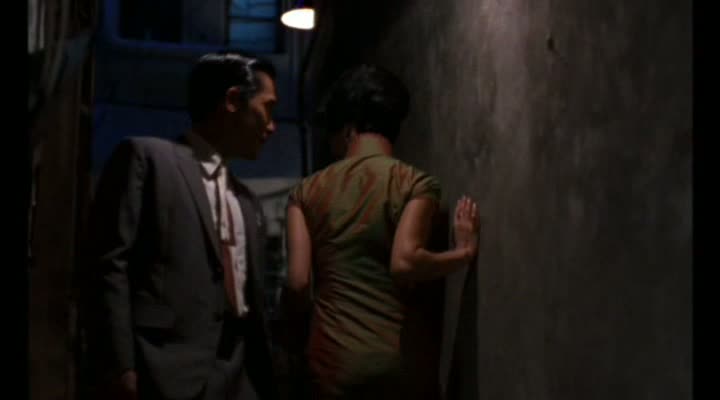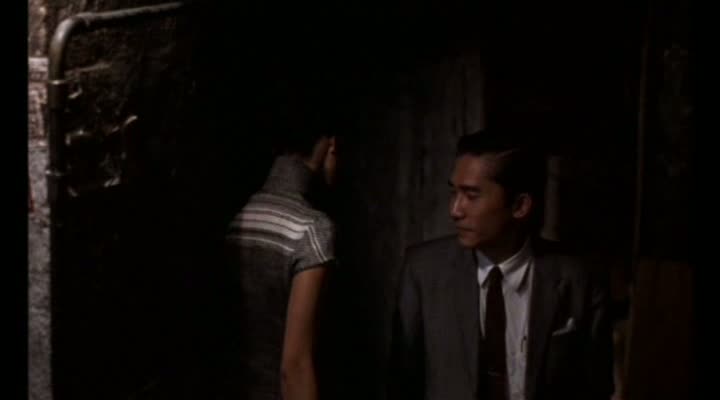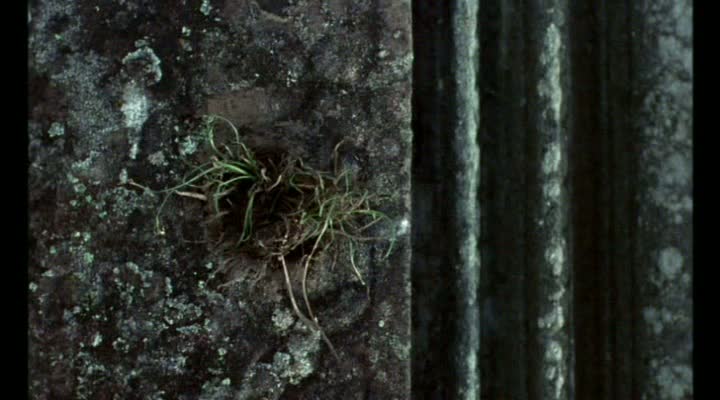"In the Mood for Love" is a stylistic masterpiece in movie making. Its title is (Traditional Chinese: 花樣年華; Simplified Chinese: 花样年华; Pinyin: Huāyàng niánhuá; Yale: Fa yeung nin wa (Fā yeuhng nìhn wàh), literally "the age of blossoms" or "the flowery years", which is a Chinese metaphor for the fleeting time of youth, beauty and love.) ITMFL is a 2000 Hong Kong film directed by Wong Kar-wai, starring Maggie Cheung and Tony Leung. The film premiered on May 20, 2000, at the 2000 Cannes Film Festival where it was nominated for the Palme d'Or. The English title derives from a Bryan Ferry cover of the song "I'm in the Mood for Love" that was not included in the film. The story was set in 1962 Hong Kong.
Chow Mo-wan (Tony Leung) and Su Li-zhen (Maggie Cheung) are neighbors living in commune rental apartments. Each has a spouse who works and often leaves them alone on overtime abroad. A recurring motif in this film is the loneliness of living and eating alone, and the film documents the lead characters chance encounters, each making their individual trek to the street noodle stall. In the context of a socially conservative 1960s' Hong Kong, friendships between men and women always incite scrutiny. The relationship between Chow and Su is platonic, and defiantly so after they discovered that their spouses were having an affair, believing they would be degraded if stooped to the same level as that of their spouses. As time passes, however, they eventually fell in love with each other. Against all temptations, their love relationship remained platonic. The film ends at Siem Reap, Cambodia, where Chow is seen visiting the Angkor Wat. At the site of a ruined monastery, he whispers into a hole in the wall and plugs it with mud.
Now you know the origin of my blog's introduction on top.
From an essay by Joanna C. Lee, the main love theme (twice accompanying the encounters between Chow Mo-Wan [Tony Leung] and Su Li-Zhen [Maggie Cheung]) is borrowed from Shigeru Umebayashi's Yumeji's Theme (from Suzuki Seijun's film of the same title). This alluring waltz, entrancing in its string ensemble arrangement, is symbolic of the tentative, romantically intriguing steps of the male and female dancers. The dance rhythm also embodies the paradox of passion and socially conformist duties of the sexes. Wong recreates his memory of radio days with a new commission with Michael Galasso who wrote the music accompanying Chow's solitary visit to Angkor Wat, four years after his platonic affair with Su. The sense of remorse, especially the haunting strings throughout these short pieces, complement well Umebayashi's theme.
The two first clips below express the loneliness felt by the main characters as they cross paths numerous times. The music is the haunting theme by Shigeru Umebayashi: "Yumeji's Theme" (originally from the soundtrack of Seijun Suzuki's Yumeji.)


As they struggle to imagine how they were betrayed during their many secret meetings, both fell in love (thus the movie's title) but resisted to remain platonic throughout the entire film. The third clip, after a brief historical documentary showing French general De Gaulle visiting Cambodia's prince Norodom Shihanouk, features music by Michael Galasso: "Angkor Wat Theme" that shows a heart broken Chow alone in Cambodia fulfilling the ancient oriental myth.

Wong Kar Wai has selected a mosaic of music in this luscious film, creating a sound world of Hong Kong in the 1960s. Other pieces of music heard in the film are: "ITMFL", "Casanova/Flute" and two memorable songs from Cole en Espanol: "Aquellos ojos verdes" and "Quizas, Quizas, Quizas."
(You need HTML 5 to use the new audio tool below. Use the one below it if you have Flash...)
The inspiration for the English title, by Bryan Ferry: "I'm in the Mood for Love" , found on the French 2 CD Soundtrack, is not in the film.
In the Mood for Love received raving reviews and many awards. It grossed HK$8,663,227 during its Hong Kong run and finished its North American run grossing of $2,738,980. The film's total worldwide box office made US$12,854,953.
Awards:
2000 Cannes Film Festival - Won: Best Actor (Tony Leung Chiu-wai)
2001 Hong Kong Film Awards - Won: Best Actor (Tony Leung Chiu-wai,) Best Actress (Maggie Cheung,) Best Art Direction (William Chang,) Best Costume and Make-up Design (William Chang,) Best Film Editing (William Chang)
2001 Hong Kong Film Critics Society Awards - Won: Best Director (Wong Kar-wai)
2002 National Society of Film Critics (USA) - Won: Best Foreign Language Film and Best Cinematography (Christopher Doyle, Lee Pin-bing)
2001 César Awards - Won: Best Foreign Film
2001 German Film Awards - Won: Best Foreign Film
2001 New York Film Critics Circle Awards - Won: Best Foreign Language Film and Best Cinematography (Christopher Doyle, Lee Pin-bing)
2002 Argentinian Film Critics Association Awards - Won: Best Foreign Language Film
2000 Asia-Pacific Film Festival - Won: Best Cinematography (Christopher Doyle, Lee Pin-bing) and Best Editing (William Chang)
2001 British Independent Film Awards - Won: Best Foreign Language Film
2002 Chlotrudis Awards - Won: Best Movie and Best Cinematography (Christopher Doyle, Lee Pin-bing)



No comments:
Post a Comment